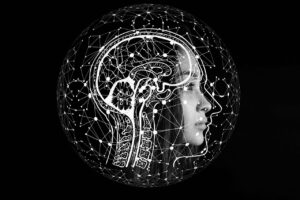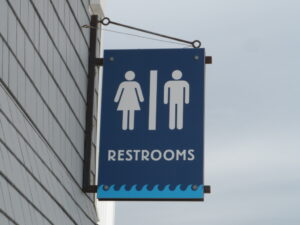Many people have taken to strong opinions about the validity of the claim that the recent prevalence of social media has been a net negative for modern society. From addiction, mental health issues, and misinformation to the erosion of cultural diversity, there are quite a few reasons people have cited for social media having a deleterious effect on our society. But for every negative, there seems also to be a positive – there may be links to the use of social media and mental health issues, but there are also those that would not have been able to find the help they needed had it not been for social media. The erosion of cultural diversity can be seen more as the breakdown of dividing walls that had plagued us for millenia, finally allowing us to unite despite cultural differences, as we are finally able to openly communicate on a truly large scale.
Exposure
Cultural enrichment, open discussions → progress
One of the bigger talking points in favor of social media is that of the greater connectivity it offers. Never before has it been so easy to speak to people not just from other regions of the Earth, but people of differing cultures and viewpoints. This exposure to new and differing ideas has seen an accelerated course of progress, socially and otherwise – most surveyed in Pew Internet/Elon University study say social benefits of Internet use far outweigh negatives. Progress is and has always been best made through the conflict of differing ideals, and the ability to simply log in to Twitter or Instagram and get immediate access to thousands of people with different beliefs than your own has made this conflict has made progress as easy as it has ever been. I, right now, could log on to my preferred medium and see ten people arguing in favor of Palestine and ten in favor of Israel; while that discussion is admittedly not always civil, it is still a discussion that needs to happen in order to come to a solution, and the connectivity we have today had made that discussion significantly easier. Without social media and the exposure to opposing ideas that comes along with it, it is far easier to become entrenched in one’s beliefs, leading only to polarization and stagnation. To benefit from this exposure to new ideas does not necessarily mean one’s own beliefs have to change, it simply means they will have a more developed viewpoint, whatever that viewpoint may be, regardless of how it does or does not differ from their previous set of beliefs.
The ability to access people outside of one’s immediate range also can have the effect of breaking down cultural barriers and xenophobia that otherwise would go unchallenged. Stereotypes are easier to disprove and fear of outsiders is more difficult to sustain when nobody is truly an outsider anymore. Anybody today can go visit r/Nigeria and ask any question they want. The walls that once divided us are breaking down with the help of the connectivity and communication that social media offers.
Confirmation bias, entrenchment
This ease of access to ideas can be interpreted differently, however. Confirmation bias is an easier trap to fall into than ever; just as we are exposed to new ideas that challenge our beliefs and open our minds, we are as easily exposed to ideas that confirm our preexisting beliefs and entrench us in them without considering outside ideas. This is aided by modern algorithms existing only to show us what we want to see, not what challenges us. A conservative watching political content on YouTube is more likely to watch conservative content than liberal content, and the algorithm will see that and feed that person more and more conservative content and less liberal content. This means that, despite having access to those opposing ideas, they are not truly experiencing them regardless. They are still lacking that exposure to opposing ideas and the progressive discussion that comes with it, despite the perceived ease of access. There may be more outlets of differing ideas today than before social media’s prevalence, but that also means there are more opportunities to fall into the trap of confirmation bias, which often further leads to cognitive dissonance and belief persistence.
Similarly, it is also easier to fall into fear mongering regarding people of different beliefs or cultures. Yes, it is easier than ever to access those people, but it is also easier to access people that spread misinformation about those people, and fall into another echo chamber. Just because someone has access to something does not mean they will take advantage of that. Connectivity from the internet is both a deterrence of xenophobia through exposure and a disseminator of it through confirmation bias.
News Coverage
Diverse perspectives, immediate access to information
Access to current events has been revolutionized with social media. It has never been easier for commentary on any kind of event to spread. When the war in Ukraine broke out, people knew instantly. Real time updates on breaking stories are available for everyone, from everyone. Diverse perspectives are so much easier to obtain with so many different news sources from every part of the political spectrum, giving the average person a more enriched view of the world than ever before. It is no longer up to the local newspaper to dictate how you see the events unfolding around you – there is a much broader selection of sources to draw from to form your opinion, leading to a population with much more balanced, rounded opinions. This broad, theoretically balanced news output is one of the core reasons that so many people believe that the ubiquity of social media has been good for democracy, according to the Pew Research Center.

Fake news/yellow journalism, bias, etc
The easier it is to produce news, the easier it is to produce fake news. Media that exploits existing biases and confirms the reader’s preexisting bias is often more profitable than producing real, beneficial news, and it is easier than ever to produce and access such fake news.
Mental Health
Access to help groups, companionship
Many people are able to find help groups, or even simply people that are going through similar things through social media. People to relate to, groups that make it clear that you’re not alone, et cetera., as well as being a place for self expression that someone may not otherwise have. The National Library of Medicine (NLM) conducted a study wherein “participants described feeling less alone and isolated as a result of a shared understanding and empathy amongst group members”
. . .it’s reassuring. . .hearing that you’re not the only one suffering silently. Like, if someone says, ‘Oh, I was in class the other day, and I soiled myself, and it was really embarrassing, and everyone was laughing’, it’s terrible, but it’s a way that everyone can-‘Oh yes, I experienced that when I was at work. . .’, it’s nice to know that you’re not the only one. . .there’s so much social media that can help. . .I could imagine, before that happening, I would’ve felt even more isolated. (“James”)
Addiction, insecurity
The presence of social media can have negative implications for mental health, particularly among younger demographics. Constant exposure to curated, unrealistic portrayals of others’ lives can lead to feelings of inadequacy, low self-esteem, and anxiety. The pressure to gain likes and followers fosters a culture of validation based on superficial metrics, which can diminish self-worth. The prevalence of cyberbullying and online harassment exacerbates stress and depression.









